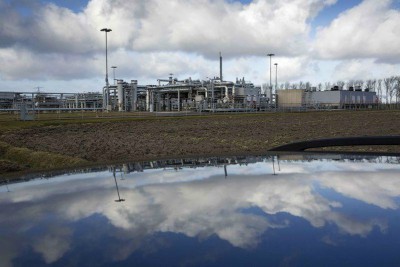Court orders Shell-Exxon criminal probe over Dutch gas quakes
AMSTERDAM (Reuters) -- A Dutch court ordered prosecutors to open an investigation on Thursday into whether a Shell-Exxon joint venture bears any criminal responsibility for earthquakes triggered by production at the country's largest gas field.
 |
| Photo Courtesy of Reuters. |
No physical injuries have been caused by numerous small quakes, which have damaged thousands of buildings and structures across the north-eastern province of Groningen, and prosecutors had previously declined to act, arguing it was a civil matter.
However, the Leeuwaarden-Arnhem Appeals Court directed them to open an investigation, saying they had not looked carefully enough at whether a crime could be proved.
The government was formally censured by the country's Safety Board after a magnitude 3.6 quake hit the town of Huizinge in 2012. This was larger than had been deemed possible by NAM, the Royal Dutch Shell and ExxonMobil JV that oversees production at Groningen.
"The court observes that there is evidence that the NAM is culpable of...damaging buildings with threat to human life," the court said in Thursday's ruling.
NAM, which has accepted civil responsibility for damage caused by the quakes and is paying damages of more than $1.1 B, said in a statement it was surprised by the decision over Groningen, which was discovered in 1959 and is one of the world's largest gas fields.
"In earlier rulings, prosecutors and the court have continually found that there was no reason for prosecution," it said, adding that investigations do not automatically lead to charges being brought.
NAM spokesman Hein Dek declined any further comment.
Earlier this week, the Dutch government said it will again cut output at the field to lessen the risk posed by quakes, the fourth such move since the Safety Board's pivotal February 2015 report said authorities had ignored potential risks at Groningen for decades and were putting lives in danger.
Output at Groningen has been steeply reduced from 53.9 Bcm in 2013 to a maximum of 24 Bcm on an annual basis at present; in October that will be further cut to 21.6 Bcm.
Reporting by Toby Sterling; Editing by David Evans and Alexander Smith

- Freeport LNG export plant in Texas reports shutdown of liquefaction train
- TotalEnergies and Mozambique announce the full restart of the $20-B Mozambique LNG project
- RWE strengthens partnerships with ADNOC and Masdar to enhance energy security in Germany and Europe
- Five energy market trends to track in 2026, the year of the glut
- Venture Global wins LNG arbitration case brought by Spain's Repsol



Comments